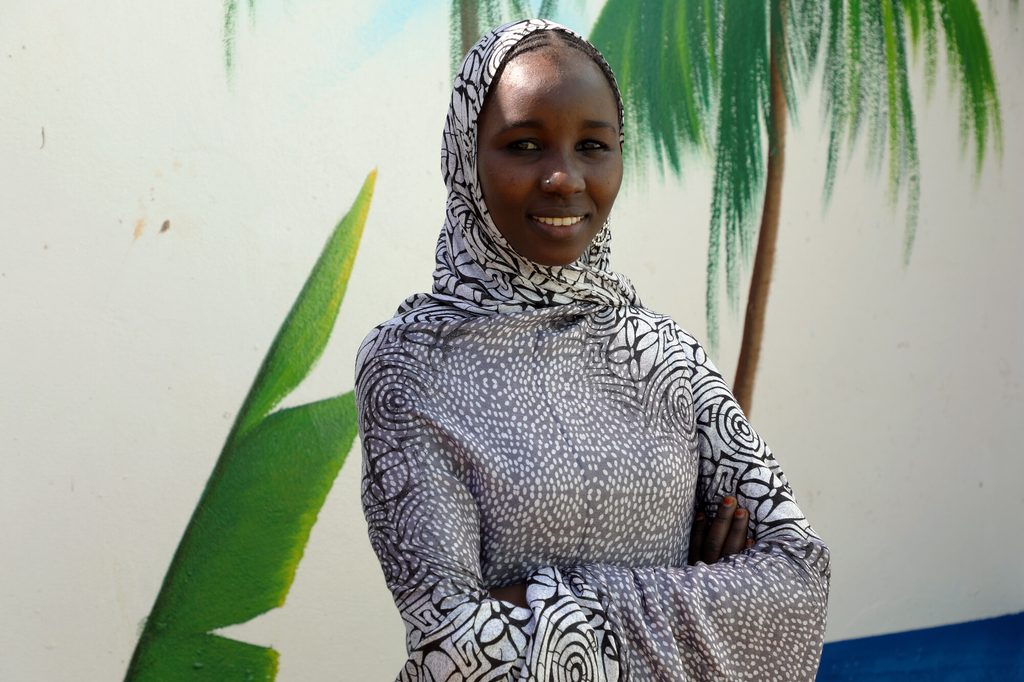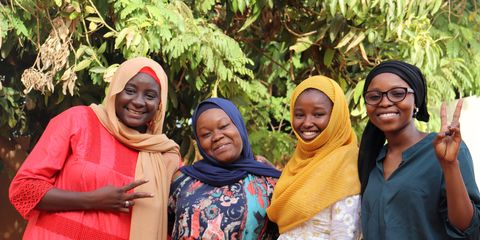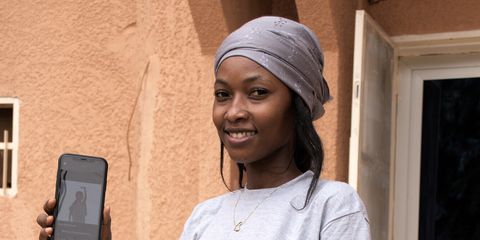Bintou, 23, wants to see the development of her community and the emancipation of girls, despite the crisis. She is conducting a mentoring programme to help other girls express themselves.

Bintou is a biology student studying animal and plant resource management. Since 2021, she has taken part in a youth leadership project run by Plan International. “It’s not about providing material or financial assistance that will eventually run out, but rather about enabling young people to become the actors of change,” Bintou explains.
As a member of the host community of Diffa in eastern Niger, 23-year-old Bintou says she wants to see the development of her community and the emancipation of girls, despite the challenges posed by the crisis leading to massive population displacement, and traditions unfavourable to women.
The project is being implemented in areas affected by the security and humanitarian crisis, where women and girls face barriers to their development. “In our communities, girls are raised to be housewives. They are subjected to traditions that have been there since the dawn of time. We want to change this by starting with ourselves and then teaching other girls and parents,” explains Bintou.
From shyness to self-confidence and activism
Bintou explains that this project has had a great impact on her life. “Before, I was in the shadows and I couldn’t talk about the things I wanted to change in my community. But my mind was awakened. Now I believe that a girl has the right to express herself, to say what she feels, to say what is wrong and what needs to change. I feel better in every way,” she says.
For Bintou, being a girl activist in such a context is not easy, and she had to convince her relatives to let her participate in the project’s activities. “At first, my father was reluctant. He hears criticism from my aunts and uncles, saying that he shouldn’t let me travel, that I should get married and that I shouldn’t continue my studies. But now I have the support of my father and my sisters envy me.”
“The most important thing for me is to get away from the housewife model as being the only perspective for girls.”
Youth leader Bintou
Today, Bintou is a confident trainer herself. “I am currently conducting a mentoring programme in 3 communities in Diffa, to help other girls express themselves freely and eloquently. I have trained 6 girls and I supervise them in training other girls. We have modules and activities that boost these girls confidence. I engage the girls by taking a cue from myself. I tell them that if I can do it, they can do it too! I believe we will be able to change things in our communities.”
While many girls are married by her age in Niger, Bintou is in no hurry. “I have a lot of pressure, but I don’t want to get married early because I plan to go on to get my doctorate. Besides, my activism is very important to me. I want to see the development of girls. The most important thing for me is to get away from the housewife model as being the only perspective for girls.”
As a young activist, Bintou would like more support from the local authorities and hopes to continue her training sessions with Plan International. “The authorities listen to our opinion, but so far the commitments they made have not materialised. In my association, we need training in administrative and financial management, in case we get funding to conduct activities in the future.”
“Insecurity is a reality, but it is not a fatality, we can still do a lot!”
Youth leader Bintou
Bintou is also a member of Plan International’s youth partner association “Leaders for Change”, a network of young people from Niger, Nigeria, Cameroon, and Chad. The association has already organised activities with the support of Plan International.
“During the 16 Days of Activism against Gender-Based Violence, we met refugee and displaced girls. We are looking at ways to help them protect themselves from sexual exploitation. We asked them what they needed as the solutions and perspectives must come from them,” Bintou says.
Support needed for crisis-affected youth
When asked what her priority is for helping communities in the crisis context, Bintou says that the focus should be on youth. “In Diffa there are many groups of young offenders. We need to work with them, enrol them in school, train them to live in society peacefully, to join associations. Insecurity is a reality, but no matter how much it impacts us, it is not a fatality, we can still do a lot!”
As part of the project “Youth lead stabilisation efforts in the Lake Chad basin”, nearly 300 young people received training in public speaking, life skills, advocacy and conflict management.
The communities living in the Lake Chad basin continue to face a protracted and complex crisis caused by extreme poverty, climate change, violent conflict and lack of social services. More than 11,23 million people were in need of humanitarian assistance and nearly 3.2 million were displaced as of November 2023 according to OCHA.

